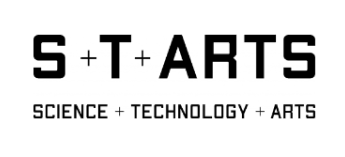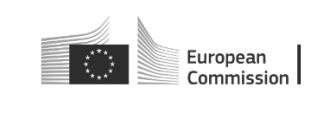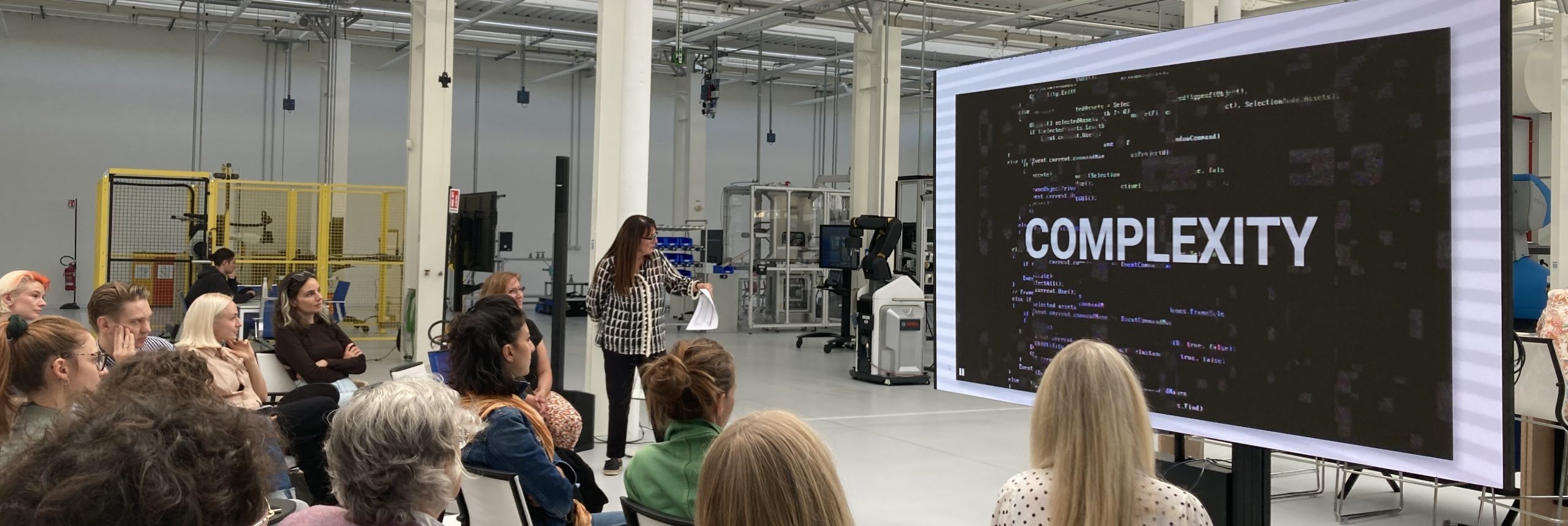
Stay up-to-date and informed
about Open Calls, upcoming events, and other important news by subscribing to the MUSAE Newsletter!
GROW, COOK, CODE: Rethinking Food Futures
What if the future of food were not just about efficiency, but about care?
What if art could lead us to new ways of nourishing ourselves—and the planet?
GROW, COOK, CODE was the final exhibition of MUSAE, a three-year European project that explored how art-driven innovation could help build food systems that are more sustainable, inclusive, and health-centered.
Over three days, GROW, COOK, CODE transformed the Palace of Science in Belgrade into a vibrant space of dialogue between art, science, and society. The exhibition presented the results of ten months of collaboration between artists and companies within the MUSAE project, inviting visitors to explore multiple futures of food through immersive installations, speculative prototypes, and interactive experiences.
The exhibition brought together 11 visionary prototypes, developed through the Design Futures Art (DFA) Method — an approach that placed artistic research at the core of interdisciplinary collaboration, where creativity sparked bold responses to the urgent challenges of our time. The projects are created based on the visions of the food futures for the year 2030. These visions were not meant to predict, but to provoke — opening new perspectives on the relationships between species, between technology and ecology, between nourishment and culture.
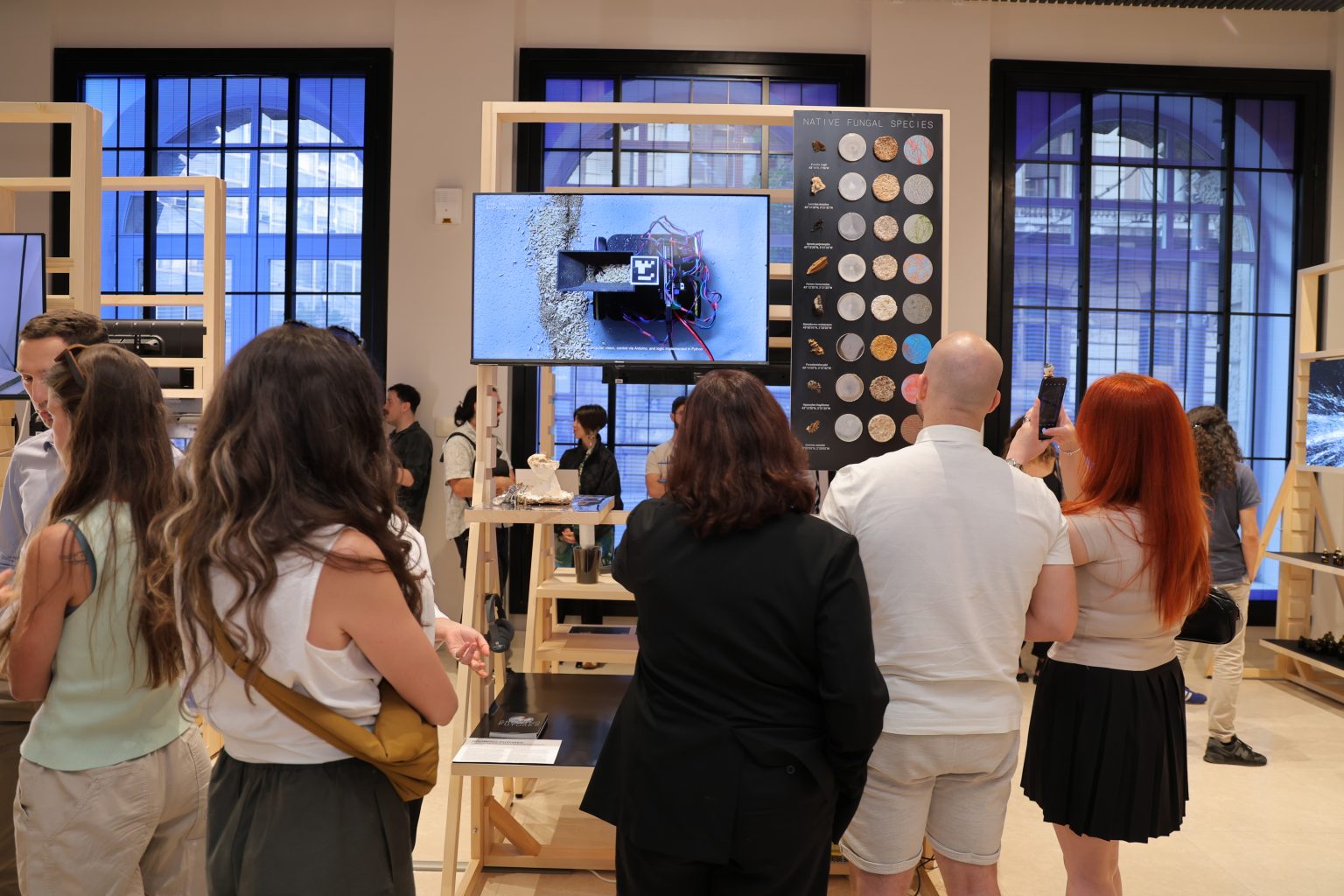
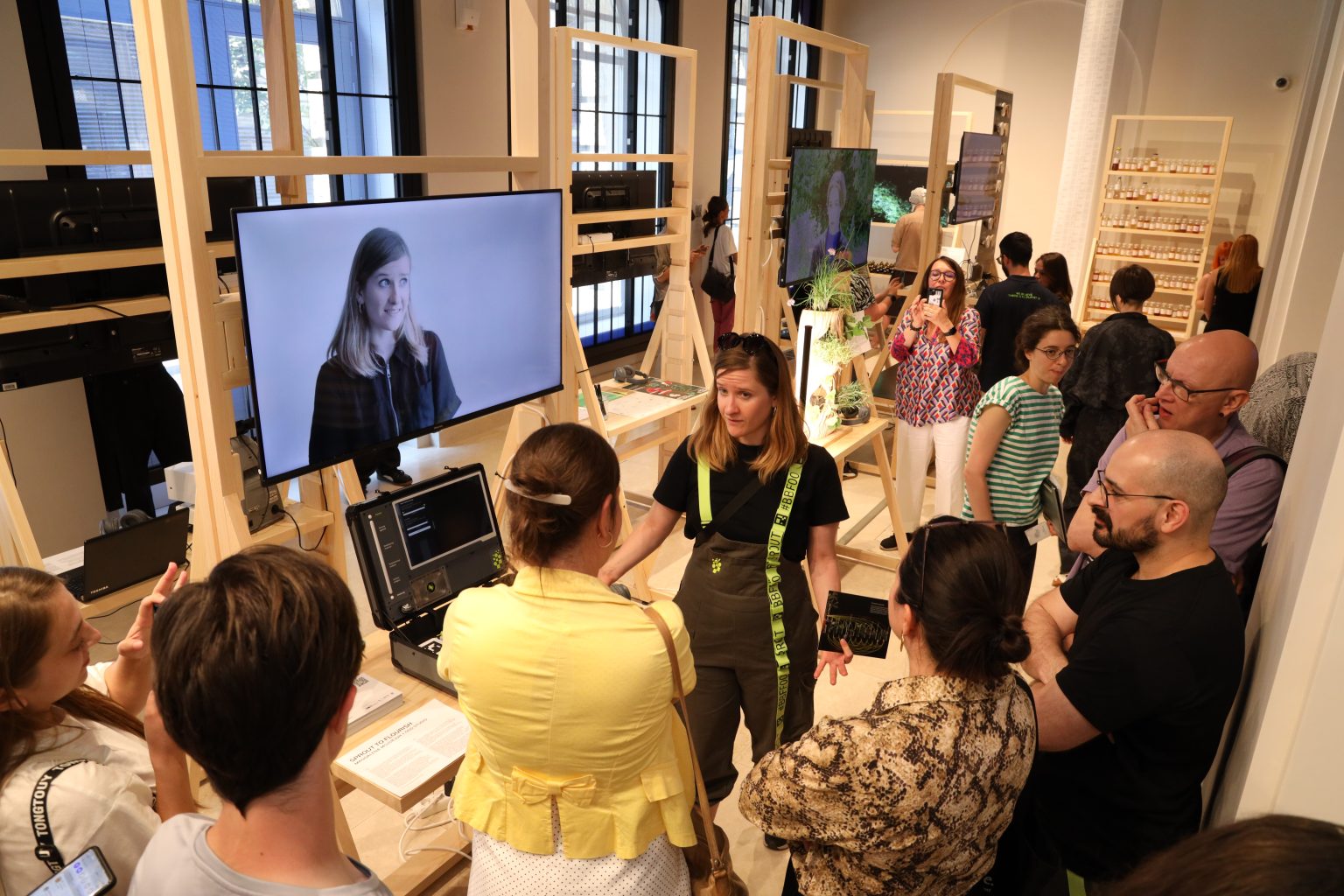
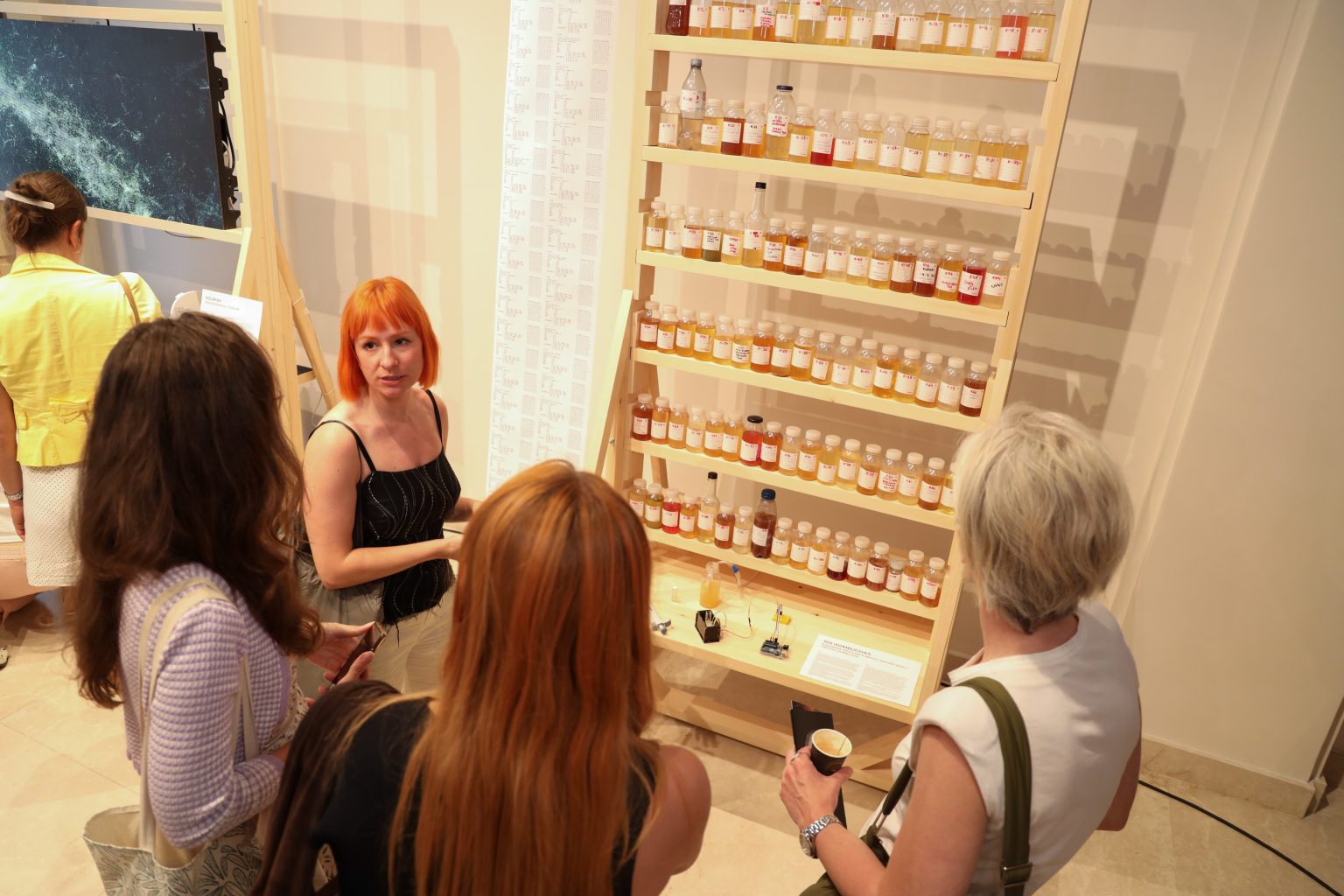
Exhibited Projects and Collaborations
- BITZ – Center for Genomic Gastronomy (USA/Netherlands) + Nicetrails (Spain)
- Fermenting Traditions – Eleanora Ortolani (Italy) & Malou van der Veld (Netherlands) + Twisted Kombucha (UK)
- SOIL AI – Michael Wallinger (Austria) + Microfy Systems (Spain)
- S.O.S. – Robin Jonsson (Sweden) + Dyno Robotics (Sweden)
- Nourish – Sanja Šikoparija (Canada/Serbia) + StarLab (Spain)
- Remedy Garden – Baum & Leahy (Germany/UK) + Blast Studio (UK)
- BeeSustain – Miljan Stevanović (Serbia) + BeeHold (Serbia)
- Sprout to Flourish – Magdalena Mojsiejuk (Poland) + Odd Studio (Portugal)
- Growing Futures – Daniela Amandolese (Spain) + Basque Biodesign Center (Spain)
- Neuro-Cooking – Anna Rosinke (Germany) + MBRAINTRAIN (Serbia)
- SOIL – Letizia Artioli (Italy) + Up to Earth (Italy)
Each project offered a unique lens on the future of food — ranged from high-tech tools for soil regeneration and open biodiversity mapping platforms to sensor technologies reconnecting our senses with the land. Some explored robotics and artificial intelligence; others returned to slow, embodied, and low-tech practices. Together, they redefined technology not as a neutral solution, but as a tool for connection, care, and regeneration.
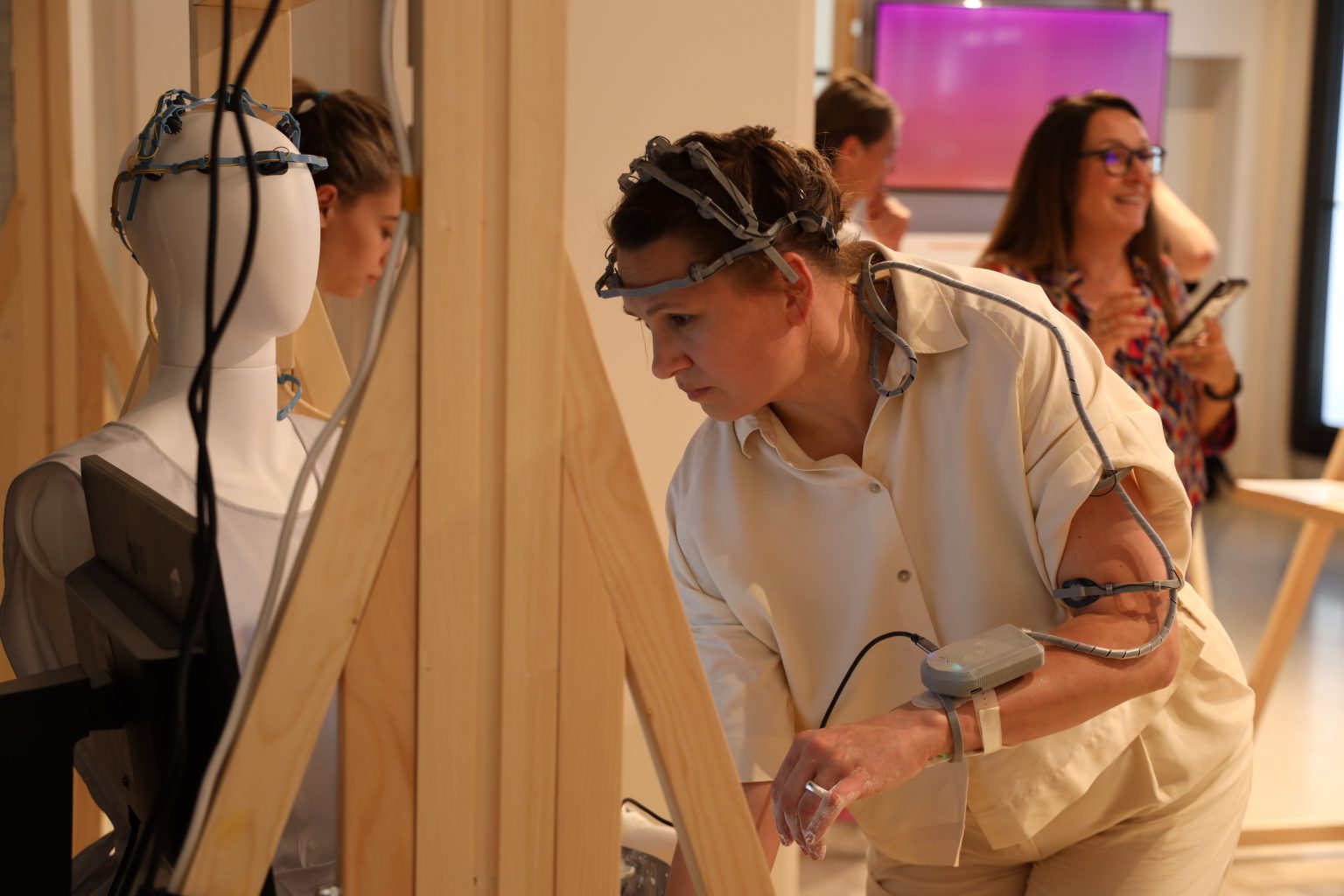
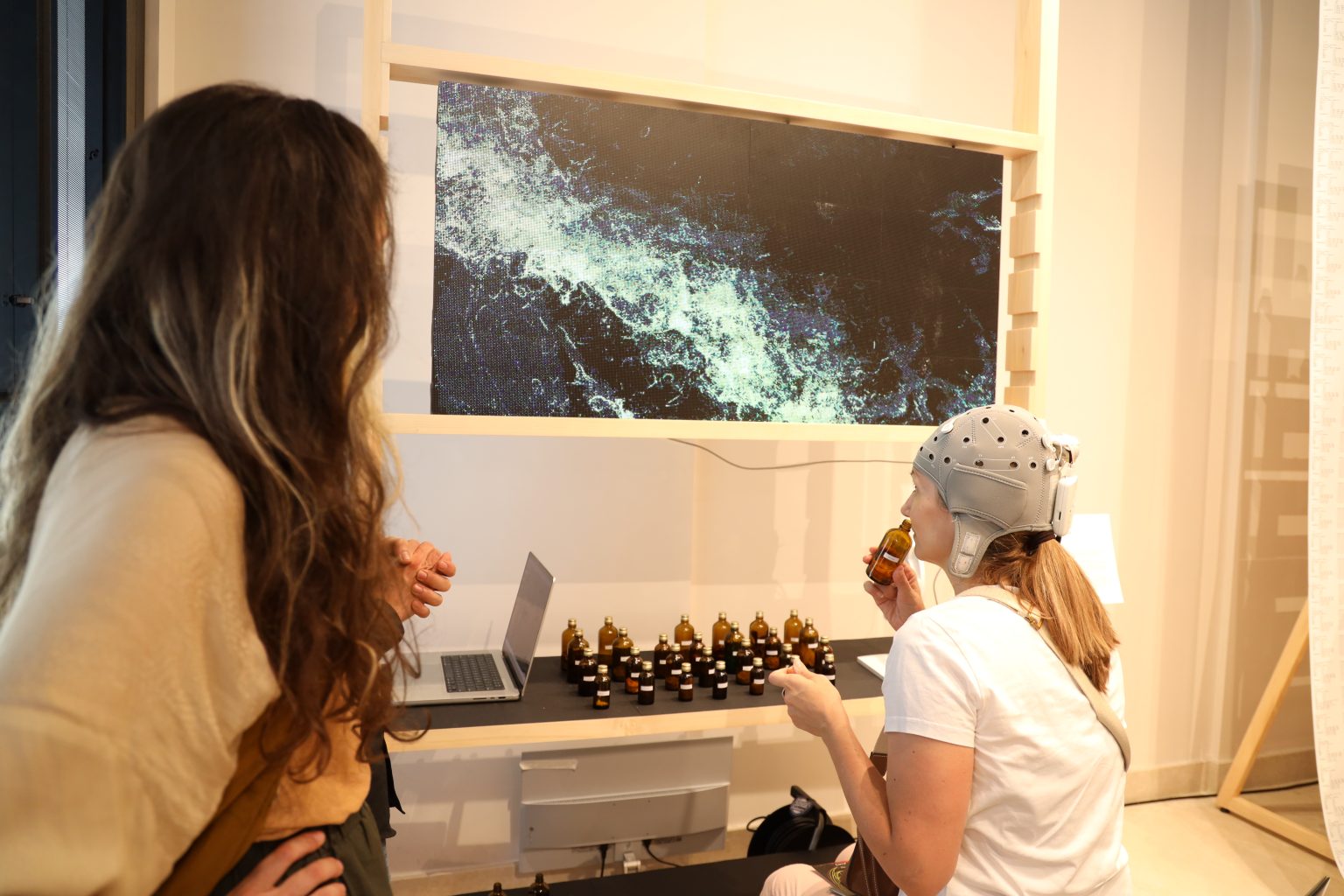
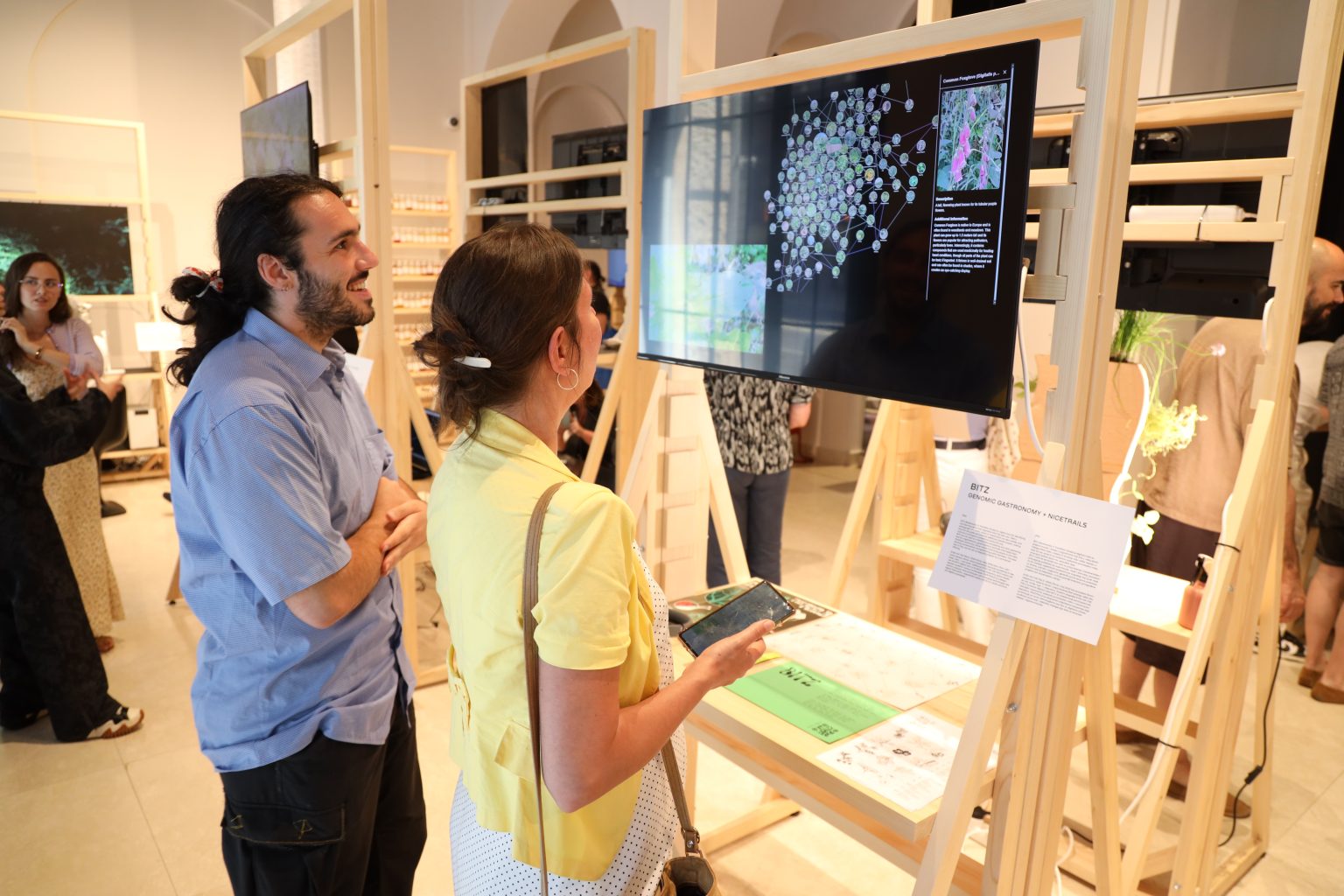
S+T+ARTS Academy: Building Bridges Between Art and Technology
Parallel to the exhibition, the S+T+ARTS Academy took place on June 23 at the Palace of Science. The one-day program gathered artists, researchers, and innovators to explore the potential of collaboration at the intersection of art, science, and technology. It also presented and inaugurated ETF Robotics as a S+T+ARTS Knowledge Hub in Belgrade.
The Academy combined interactive lectures, presentations, and networking sessions, offering participants the opportunity to connect with MUSAE artists and discover funding opportunities within the S+T+ARTS ecosystem. It strengthened local and international networks, fostering new synergies for future art–tech collaborations.
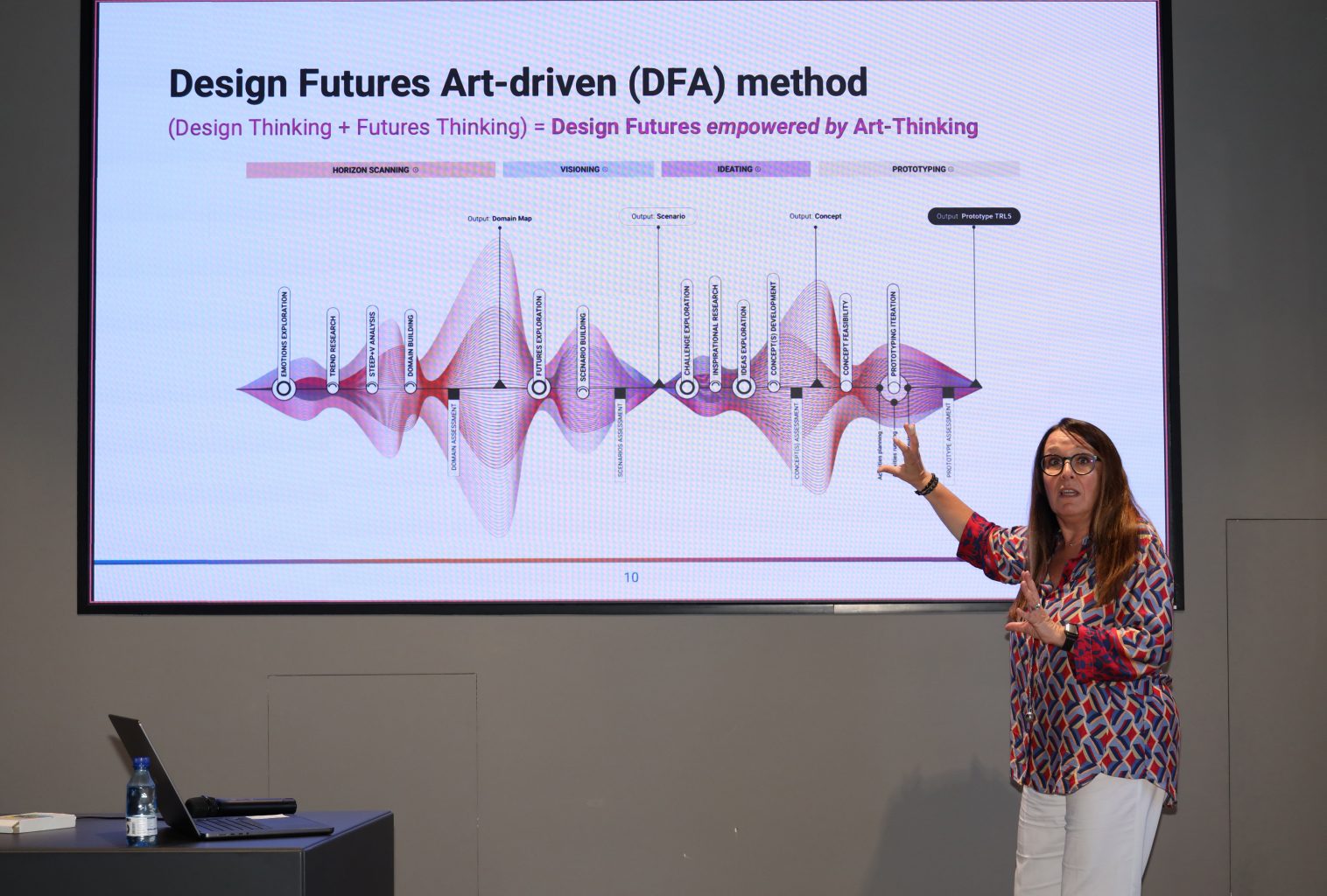
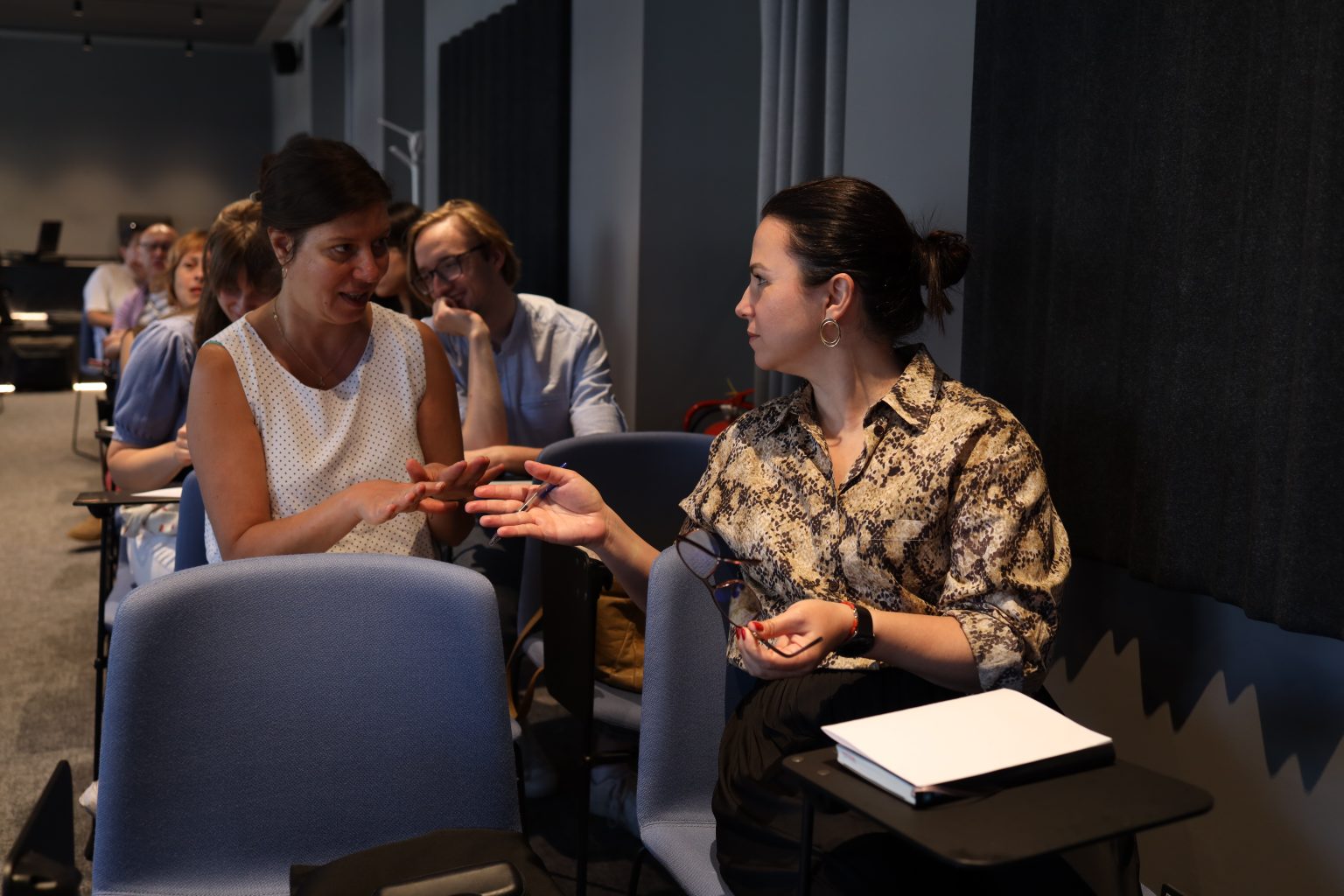
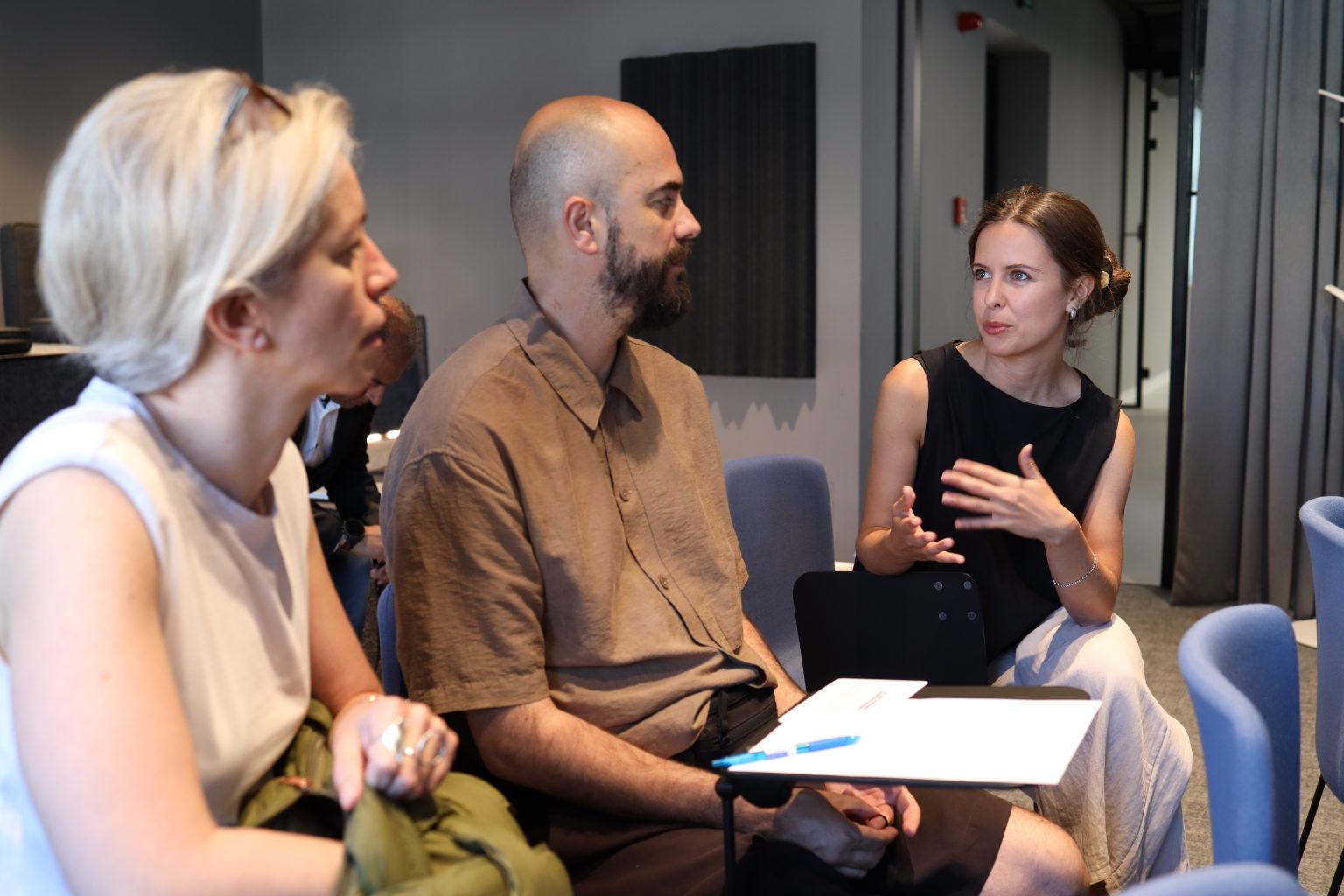
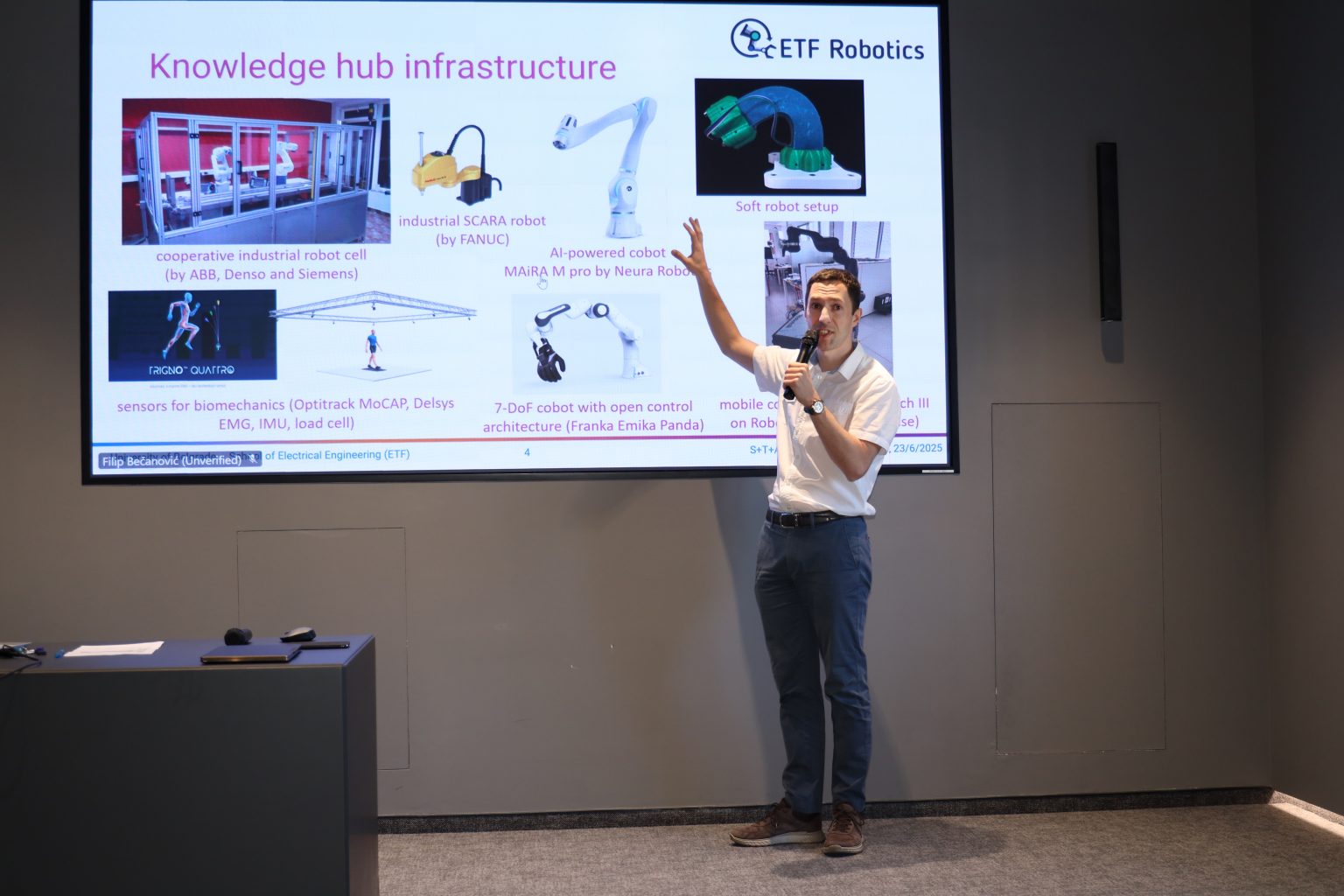
EVENT: MUSAE KICK-OFF | 2nd Art-Tech Experiment
September 2024
Milan, Italy
MUSAE 2nd Residency kick-off in Milan. The residency is designed to help winning teams explore food-as-medicine challenges and develop innovative concepts to improve health outcomes through dietary interventions.
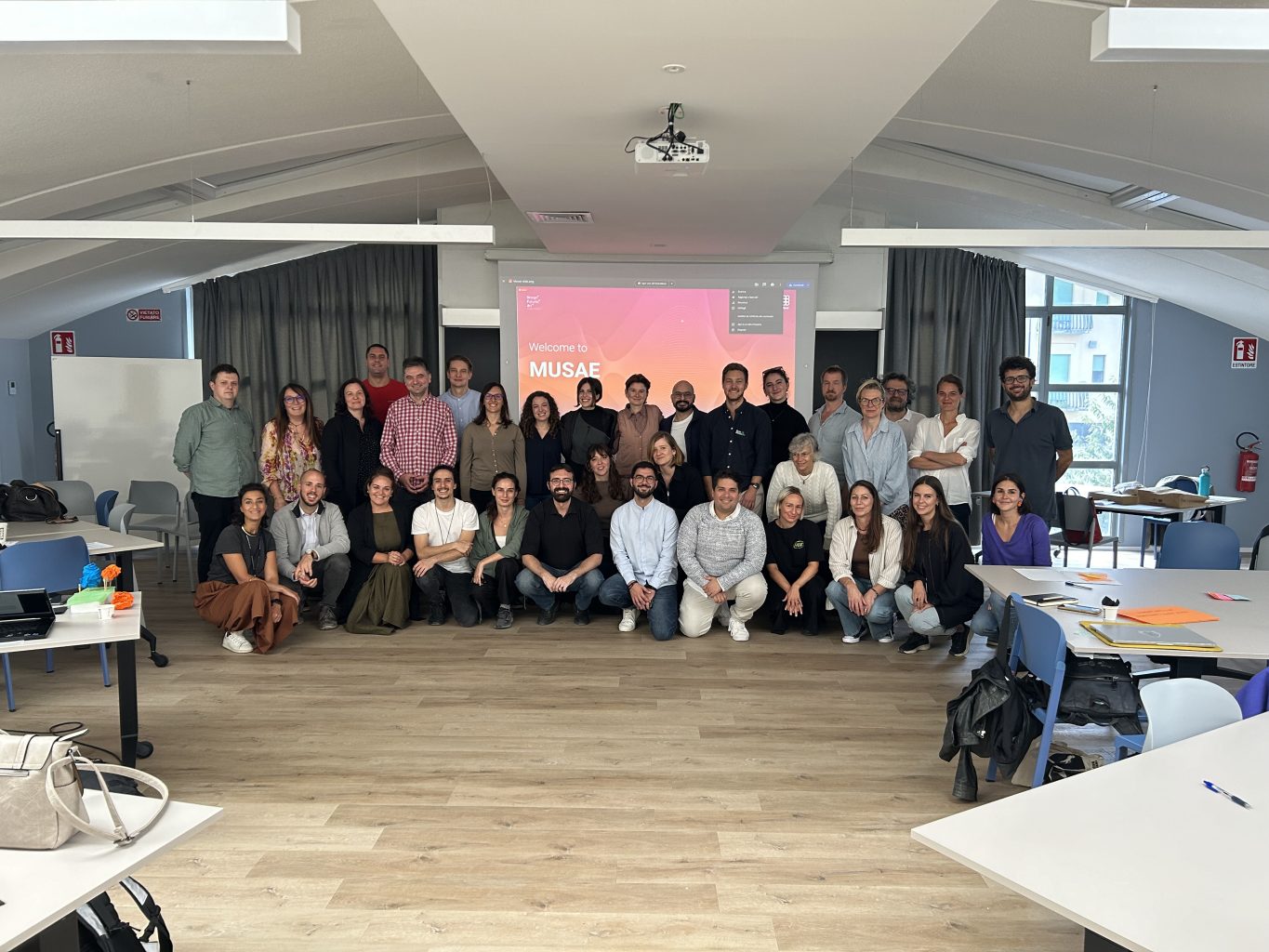
EVENT: Future Foodscapes Exhibition Overview
9-10 April 2023
Barcelona, Spain
The exhibition “Future Foodscapes”, organized by University of Barcelona, took place in the historic building of the University of Barcelona, located in the heart of the city. The chosen space was the vestibule of this historic building, a feature greatly appreciated by its visitors.
The exhibition aimed to provide artists in the first residency the opportunity to showcase their artworks, prototypes, and research processes to the general public for two days. Following this, the artists had the opportunity to present their projects individually to the general public, SMEs, and cultural agents in Barcelona.
The artworks presented were an extension and synthesis of what had been developed during MUSAE’s first art-tech residency. The artists worked closely with their mentors to formalize and finalize their artworks. The objective was to disseminate each project so that SMEs, companies, DIHs, and cultural entities in Barcelona and Europe could learn more about them. This aimed to generate interest among SMEs, promoting collaboration and support for the projects created during the first residency, thereby providing continuity into the MUSAE S+T+ARTs second residency.
During the preparation of the first phase of the residency, the artists formalized their work based on three initially proposed technologies: Artificial Intelligence, Wearables and Robotics. To materialize their works, the artists used multiple formats such as video, multi-screen, 3D printing, textile printing, programming, art books and performance. Their vision focused on the possible application of their work in the food industry, following the motto “Food as Medicine”. The aim of these projects was the exploration of alternative futures to seek more sustainable and healthy ways of food production, with improvements in labor and environmental policies, and to market quality products that are accessible to all.
Most of the works presented in MUSAE’s first artistic residency were inspired by functional and socio-cultural aspects. This sparked the interest of health and wellness companies, culinary education institutions, and the food industry. The exhibition proposed personalized nutrition solutions, the development of artificial intelligence-driven recipes, and innovations in technologically enhanced kitchen appliances. The food industry, eager to stay ahead of consumer trends, could explore AI- and robotics-driven recipe development to meet the growing demand for innovative and health-friendly culinary offerings.
In the next booklet, you can check each artwork developed by the 12 artists: Chloé Rutzerveld, Lisa Mandemaker, Eleonora Ortolani, Sanja Sikoparija, Nonhuman Nonsense, Baum & Leahy, Peter Andersen, The Center for Genomic Gastronomy, Frederik De Wilde, Maciej Chmara, Katarina Andjelkovic, and Irena Djukanovic.
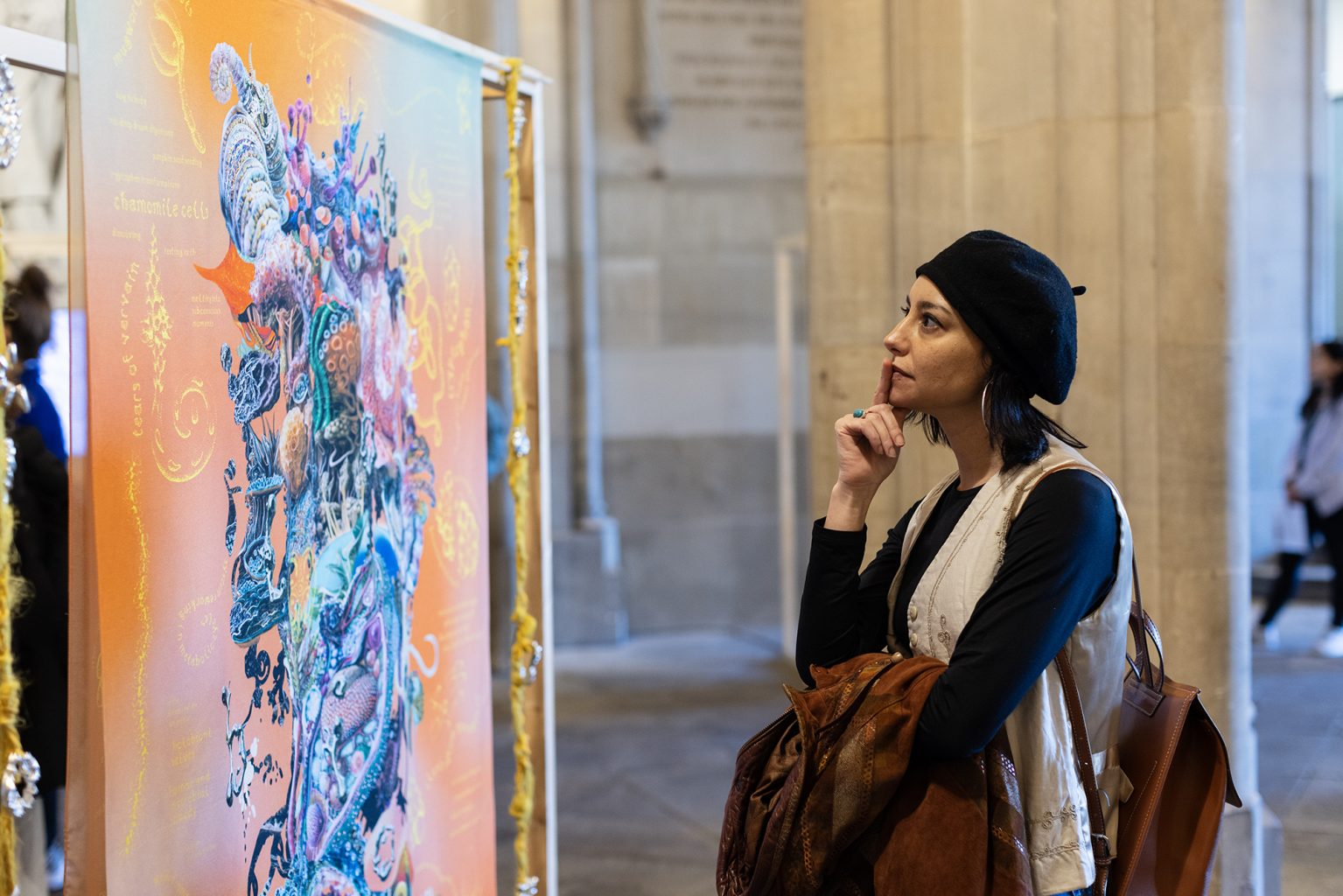
EVENT: MUSAE Technology Training Workshop
Navigating Sustainable Technology in the Food System through AI, Robotics, and Wearables
November 2023
Barcelona, Spain
MUSAE consortium, together with 10 artists and external guest speakers, met in Barcelona to explore and discuss the impact and opportunities of technologies in the domain of food systems.
External Speakers:
The Ethics of Generative AI – Jordi Vitria
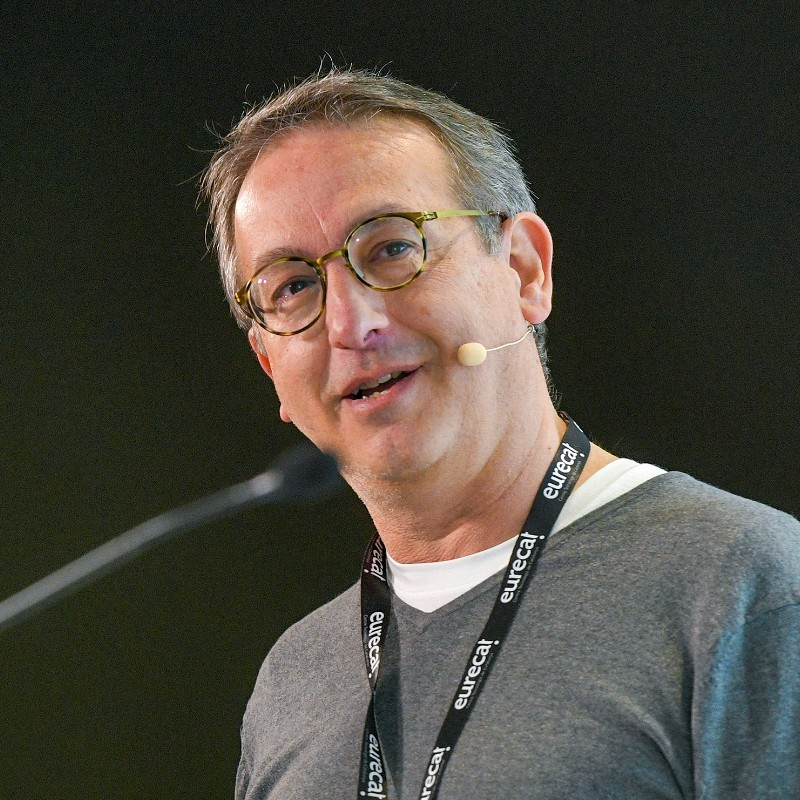
Date: 7-Nov-2023
Time: 10:00 CET
Bio Sketch:
Jordi Vitrià is a Full Professor at Universitat de Barcelona since 2007. He teaches courses on algorithms and data, AI ethics, data science, and deep learning. His research initially focused on digital image analysis and quantitative information extraction when personal computers had limited memory. Over time, his work shifted towards computer vision problems. Currently, he leads a research group working on causal inference, computer vision, and machine learning. He has published over 100 peer-reviewed journals and holds international patents. Additionally, he has supervised 14 Ph.D. theses in the field of machine learning and computer vision.
Transcend Binary: Merging Story, AI, and Food Culture by NFB Creator – Alex Boya
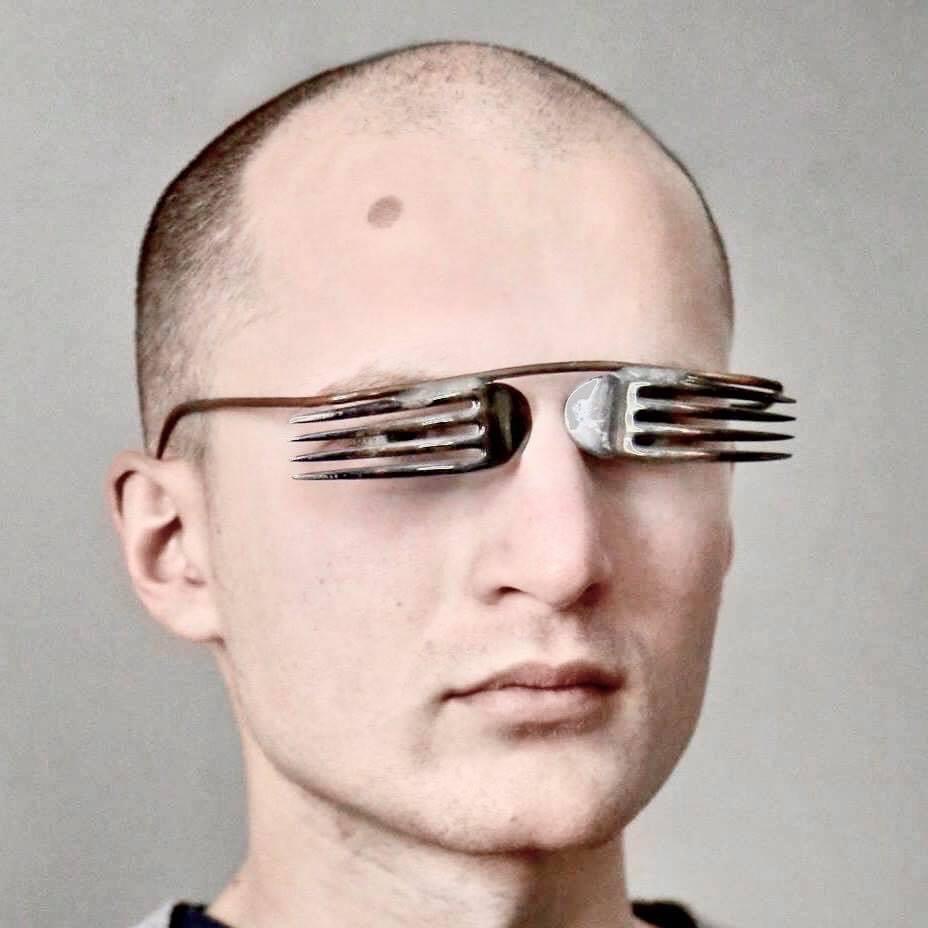
Date: 7-Nov-2023
Time: 10:00 CET
Bio Sketch:
Jordi Vitrià is a Full Professor at Universitat de Barcelona since 2007. He teaches courses on algorithms and data, AI ethics, data science, and deep learning. His research initially focused on digital image analysis and quantitative information extraction when personal computers had limited memory. Over time, his work shifted towards computer vision problems. Currently, he leads a research group working on causal inference, computer vision, and machine learning. He has published over 100 peer-reviewed journals and holds international patents. Additionally, he has supervised 14 Ph.D. theses in the field of machine learning and computer vision.
EVENT: Visiting the University College Dublin
October 2023
Dublin, Ireland
The training in Food as Medicine took place in University College Dublin over three days (04-06th October 2023) with 10 artists of the first art-technology experiment. The training included explanatory sessions to introduce the topic, information sessions to explore the research environment related to “Food and Medicine”, interactive meetings and individual time slots to reflect. Through activities such as tracking their own diet and participating in the sensory evaluation of food, the artists had a deep dive into key aspects of food and health research. Interactive sessions with researchers to discuss their work spanning from soil to health enabled a broad understanding of key challenges in food and health research.
EVENT: MUSAE Kick-off week
September 2023
Milan, Italy
MUSAE 1st Residency kick-off in Milan. The residency is designed to help artists envision future scenarios related to the food domain to improve people’s and the planet’s well-being.
